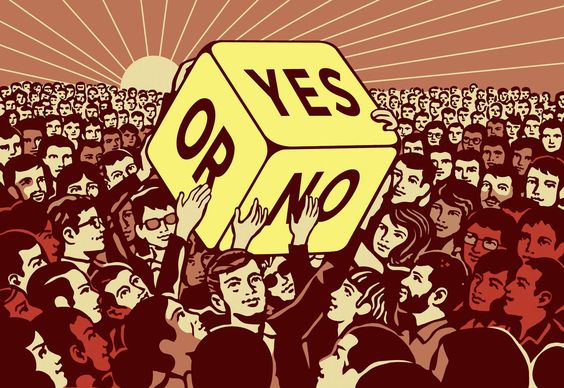A Cultural Influence of Gambling Games Across the Globe
Casino entertainment have long been a fascinating form of entertainment, drawing millions of players from varied cultures around the globe. From the lively casinos of Vegas to the thriving gambling halls of the Cotai Strip, these games serve as a link that unites people across various backgrounds. The allure of luck, skill, and gambling entices not only those hoping to strike it rich but also those looking for a shared experience.
The influence of casino games extends far beyond the gaming floor. They often represent the cultural standards and beliefs of the communities in which they flourish. Games such as seven-card stud, 21, and the spinning wheel have integrated into the tapestry of mainstream culture, influencing everything from cinema to clothing. As we explore this intriguing intersection of luck and culture, we can better understand how these games shape and are affected by the surrounding world.
Historical Evolution of Gambling Games
The roots of casino activities can be tracked back to ancient cultures, where gambling in multiple forms was extensively engaged in. In China, around 2300 BC, a form of gambling known as Keno was well-known, while in historic Rome, soldiers would regularly bet on the outcomes of their contests. The idea of using randomness for amusement and profit evolved over the ages, leading to the formation of more organized games. By the final Middle Ages, betting houses initiated to emerge in European nations, notably in Italy, which brought forth early forms of famous activities still enjoyed today.
As betting expanded popularity in Europe, the 17th and 18th centuries saw the appearance of casinos as exclusive locations for gaming. The earliest official casino, the Ridotto, was set up in the Venetian city in sixteen thirty-eight, providing games like the game of Baccarat and the game Faro. This period marked a significant shifting point, as casinos started to draw not just the high society but also the expanding middle-tier society. The sophistication of games increased, leading to the introduction of new rules and modifications that improved the gaming experience.
In the 19th century, the industrial age and transformations in societal standards further altered the environment of gambling games. The introduction of roulette and modern slot machines pulled in a more diverse crowd, and gaming houses became seen as legitimate entertainment. This period witnessed the globalization of gambling, as gambling houses expanded from European nations to the Western Hemisphere, culminating in the establishment of the famous Las Vegas Boulevard in the 20th century. The development of gambling games has progressed into the present day, including technology and digital sites, making them open to a worldwide population.
# Cultural Significance within Diverse Societies
Casino activities have significant cultural importance across many cultures across the globe. In Las Vegas, the very essence of the urban landscape is woven around gaming venues, where gambling is not just a hobby but a central aspect of entertainment and social interaction. The dazzling lights and dynamic atmosphere attract millions, showcasing how games of chance can impact local economical structures and local cultures. This surrounding transforms the notion of recreation into an enriching experience that affects apparel, sound, and even movies.
Conversely, some cultures treat betting with an air of caution, seeing it through the lens of ethical considerations and tradition. For instance, in numerous Eastern societies, games like Mahjong and Pai Gow Poker are full of history and carry significant social relevance. These games are often played during meetings and occasions, fostering collective connections and strengthening kinship ties. The act of engaging in these games goes past mere entertainment, reflecting principles such as deference to seniors and the significance of collective enjoyment.
Simultaneously, in European countries such as Monaco and Rome, games of chance serve as symbols of wealth and refinement. The stylish atmosphere of these venues attracts both visitors and locals, reinforcing a sense of prestige and rarity. The art of the game of poker and the tactical components of games like banker’s game are appreciated, influencing interpersonal interactions and cultivating an attraction that fascinates a heterogeneous audience. This highlights how games of chance can simultaneously echo and mold societal views towards hazard, benefit, and social interaction.
Economic Impact and Travel Industry
Casino games play a important role in the economic landscape of many regions, particularly those that depend significantly on tourism. The revenue produced from gambling establishments fuels local financial systems, creating jobs not only within the casinos themselves but also in connected industries such as hotel management, restaurant services, and recreation. This surge of tourists, drawn by the attraction of games and the overall casino experience, stimulates spending across multiple local enterprises, contributing to the economic vitality of the area.
The existence of casinos often leads to the construction of infrastructure, including lodging, transportation systems, and recreational facilities. Neue Deutsche Online Casinos These developments are essential in enhancing the overall visitor satisfaction, making locations more appealing to tourists. Additionally, many casinos invest in local communities through sponsorship of activities and charitable initiatives, further integrating themselves into the community structure of the region. Such contribution not only supports economic growth but also fosters a positive reputation of the casino industry.
Moreover, the global popularity of casino games drives tourism competition, with regions vying to attract gamblers from across the globe. Iconic destinations like Las Vegas and Macau have become identifiable with casino culture, drawing millions annually. This competitive edge encourages innovation and diversification within the gaming industry, influencing trends in leisure and accommodation that extend beyond their limits. The ripple effects of this visitor influx extend far, impacting local economies and cultural interactions on a global scale.































































































